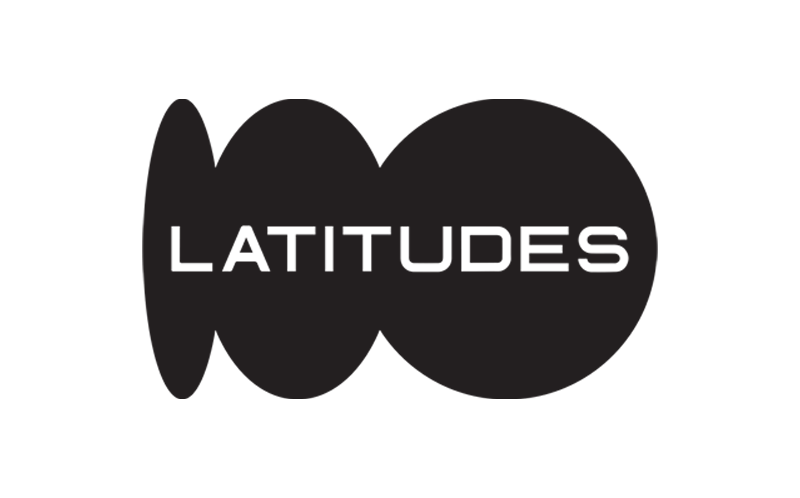Contribute to the National Visual Arts Survey
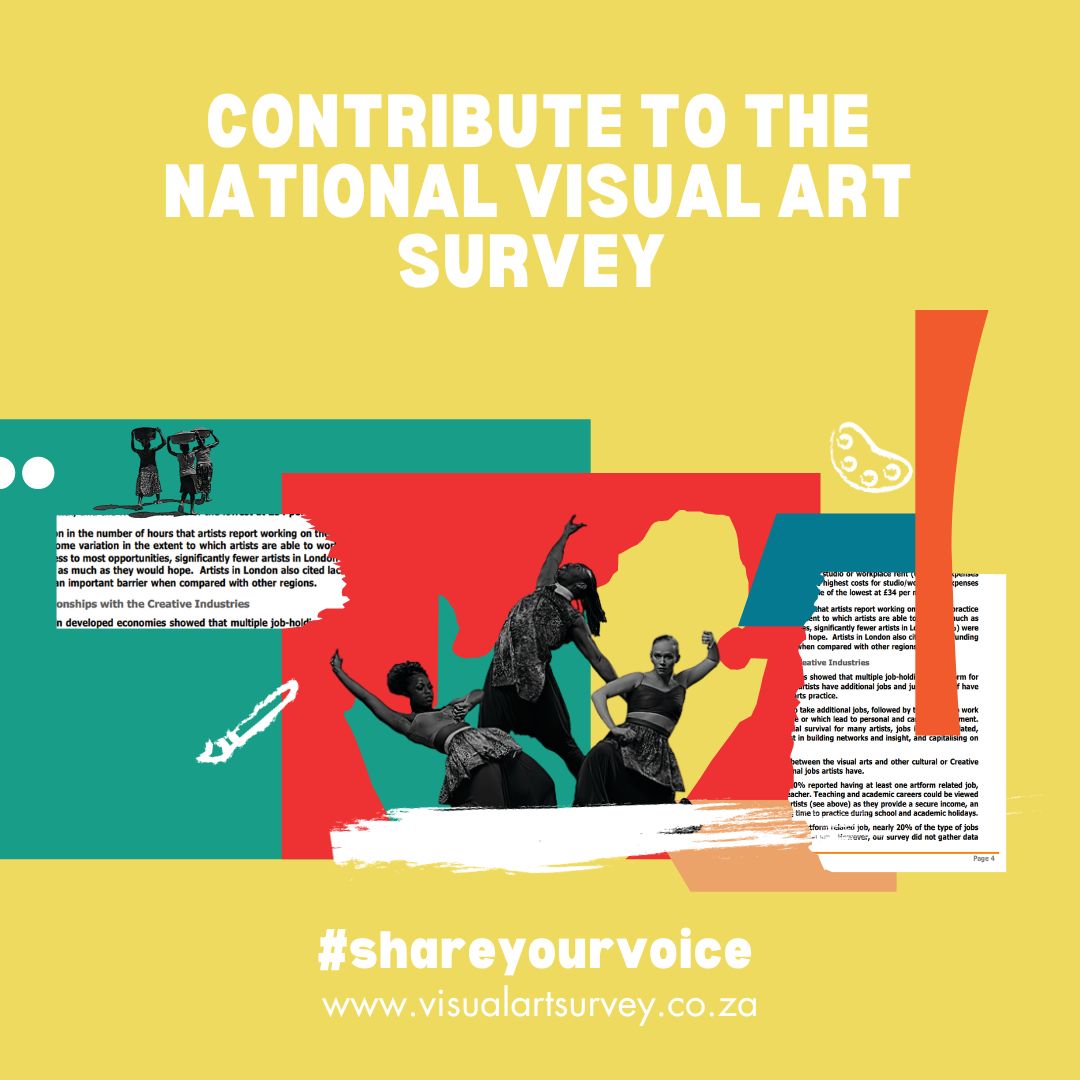
--------
What is the National Visual Arts Survey?
The National Visual Arts Survey is South Africa’s largest research initiative in the visual arts, and was first undertaken in 2009, resulting in the first major report on the visual arts in 2010. This year, the survey is being undertaken again to assess the changes and developments in the sector since then.
The Department of Sport, Arts & Culture has commissioned a review of the 2010 report - which was one of the twenty-four recommendations made in 2010, stipulating that there should be ongoing research conducted on the visual arts sector to ensure a knowledge-driven sector and government initiatives that are based on evidence and data. This year’s update covers a wide spectrum of important visual art sector issues to help the sector identify and define where its going, and what it needs to thrive.
The research is being undertaken by the creative economy insights agency Andani.Africa, guided by a reference panel of experts. The reference panel members and provincial experts play an advisory role and were carefully selected on the basis of their expertise. Some were involved in the 2009 research to also support continuity and quality outcomes of the research.
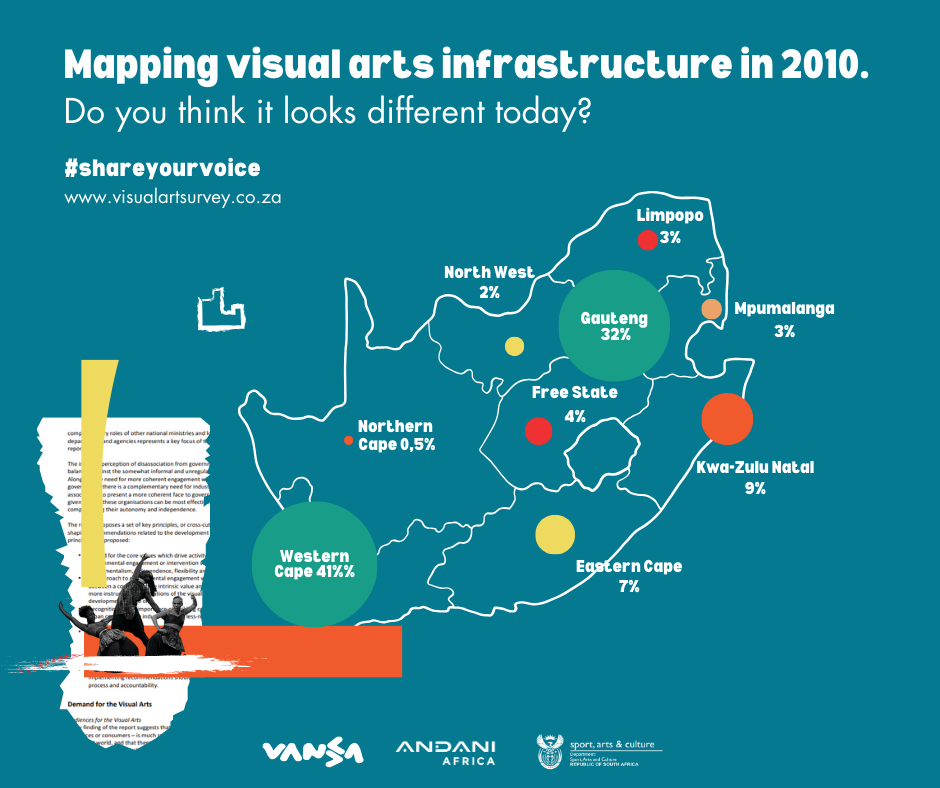
What does it entail?
The survey is for artists, practitioners working in visual arts professions such as curatorship, administration, research etc., as well as businesses and organisations. The survey is designed to only ask you questions specific to your particular role in the sector, and your experience.
Because it is an update on the 2010 research, this year's survey asks many of the same questions in order to identify developments since then. In addition however, are new focuses specific to changes in the sector such as the impact of the digital, Artificial intelligence and NFTs.
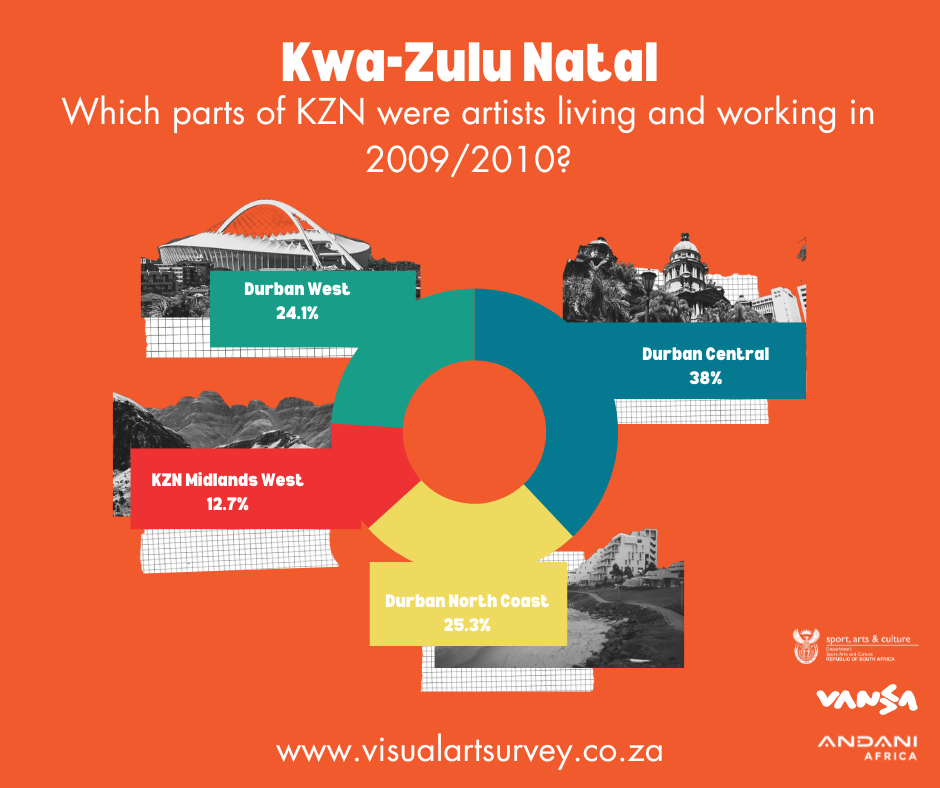
In order to get in depth data that truly reflect the visual sector as a whole, the survey asks a wide range of questions, often in significant detail. These questions include educational and demographic information, financial information, experiences of selling art and engagements with galleries, intellectual property and copyright concerns, funding etc.
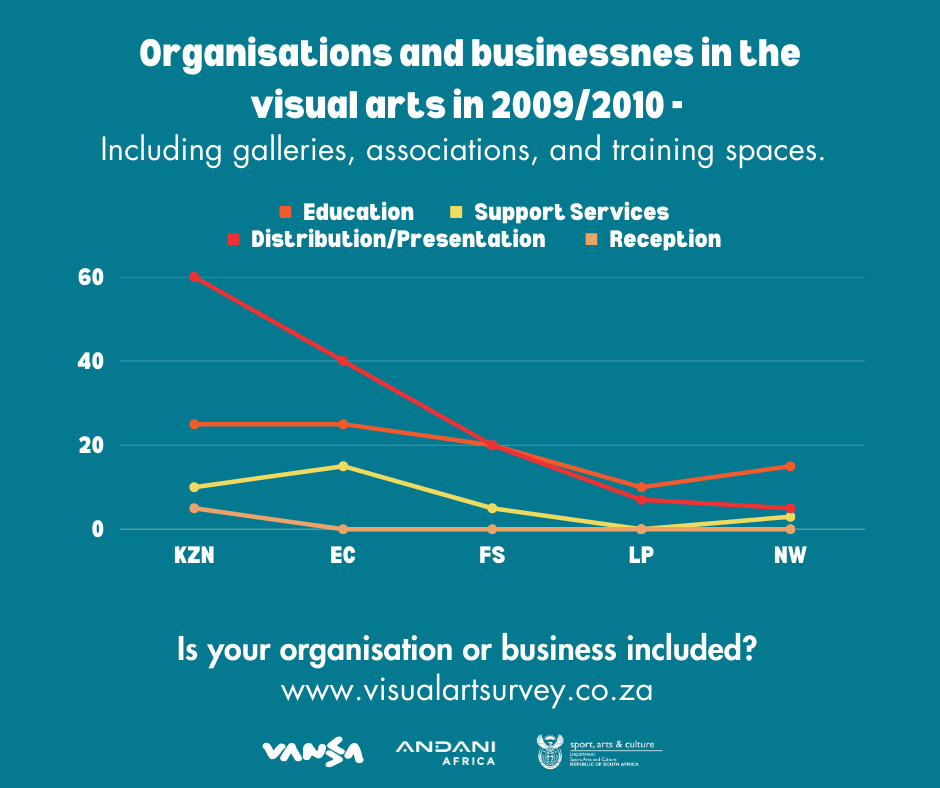
What will be done with the information? What’s the impact?
The information will be used to inform recommendations made to the South African government, but will also be shared publicly with the visual arts sector as a whole. In 2010 recommendations included some successful actions such as the establishment of a Visual Arts Task Team, The establishment of the South African National Art Bank, and the inclusion of new intellectual property right regimes for the support of artists such as the Artist Resale Right. Many of these recommendations were implemented, however there is still substantial work to be done to support people working in the visual arts to succeed. While the canvas of possibilities is vast, this sector also confronts formidable challenges. A candid acknowledgment of these issues is imperative for crafting policies that will catalyze its growth. It’s important to gather updated information to inform where we go next, and how to make new changes. It's also important to be able to argue for the important impact of the visual arts - which has grown immensely across the African continent since 2010 - at social and economic levels.
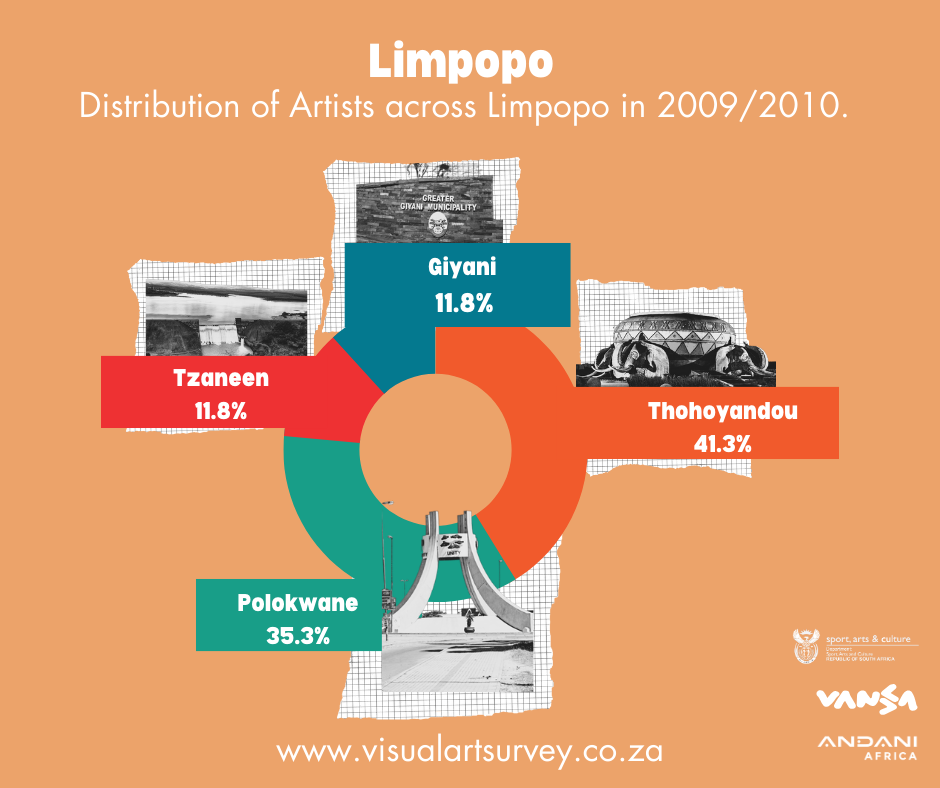
Some highlights from the 2010 research report
The Visual Arts Sector contributes R1,5 Billion to the annual GDP of South Africa
The Visual Arts Sector has a direct turnover of about R1,8 Billion
53% of people working in the visual arts are youth
50% of people working in the visual arts are Women
58% of people working in the visual arts are black
Gauteng and Western Cape make up 73% of all of South Africa’s visual arts infrastructure (museums, galleries, support organisations, educational institutions).
South African Public Art Museums had a total of approx. 1, 05 million visitors
3.18 million South Africans said they were ‘extremely interested’ in the visual arts
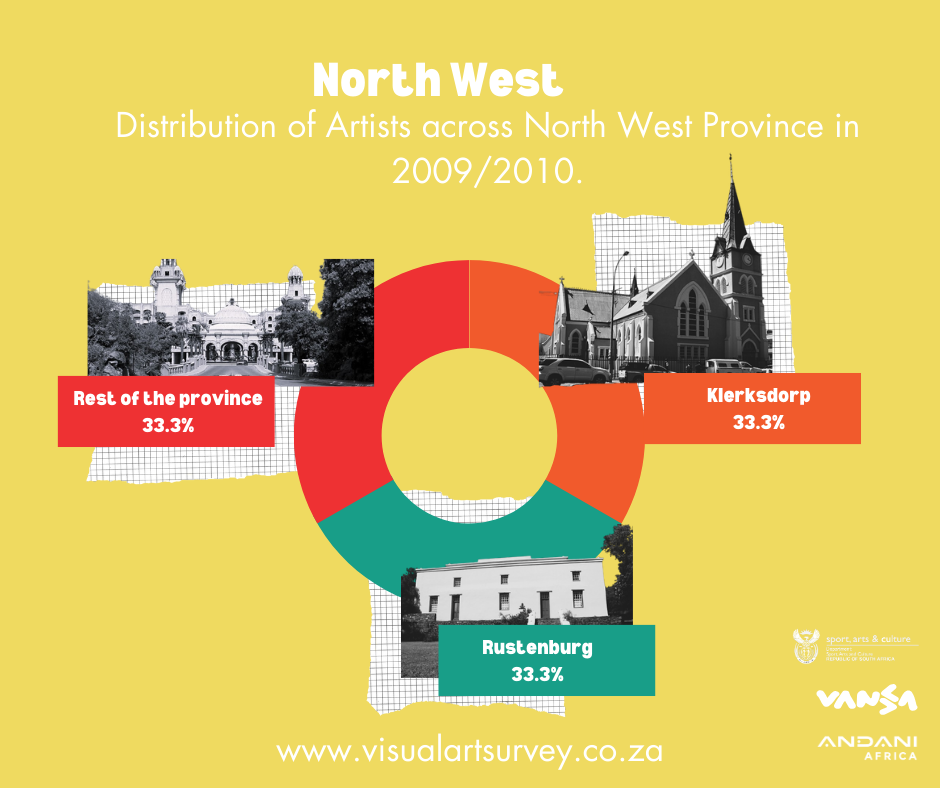
Survey runs from 1 October - 30 November 2023
For more information
Contact: makhosazana@andani.africa
www.andani.africa
@andani.africa on social media platforms
Further Reading In Articles
African Artist Directory
